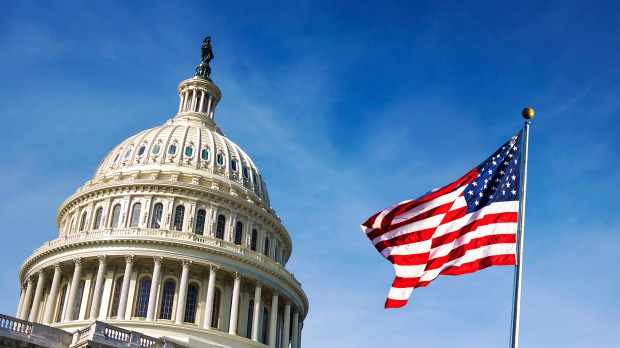Lenten Campaign 2025
This content is free of charge, as are all our articles.
Support us with a donation that is tax-deductible and enable us to continue to reach millions of readers.
U.S. Catholic bishops announced Tuesday that they were “grateful” for the infrastructure bill that passed the Senate, but voiced criticism of provisions in the legislation that would fund abortion and “advance a false understanding of gender and sexuality.”
The $1.2 trillion passed the Senate by a 69-30 vote, and will now go to the House of Representatives for debate and vote.
Archbishop Paul S. Coakley of Oklahoma City, chairman of the U.S. Conference of the Catholic Bishops’ (USCCB) Committee on Domestic Justice and Human Development, issued the a statement praising the bipartisan effort.
Praise for protection of the needy and environment
“We are especially interested in how the package affects those on the margins of society and protects God’s creation,” he wrote.
The letter also lauded the bill for including provisions on “public transit, rail, bridges, and clean drinking water, and emphases on climate change mitigation, carbon capture and climate resilience. It is also very good to see expanded broadband internet access and the creation of new jobs.”
In addition, Archbishop Coakley wrote that Congress still has work to do to address several initiatives important to the Church, including the need for universal access to health care, housing assistance, continuing the expansion of the Earned Income Tax Credit, childcare, paid sick and parental leave, parental leave, and aid to migrants.
Opposition to abortion and gender provision
Archbishop Coakley was unequivocally opposed to provisions in the bill that would result in the federal funding of abortion.
He wrote, “We continue to be resolute in our insistence that no taxpayer funding go to abortion. It is critical that any proposal to expand health care coverage avoid an expansion of taxpayer funding of abortion.”
On Tuesday, the Senate narrowly approved the Lankford Amendment, a non-binding resolution that would ban the use of taxpayer dollars to pay for abortions. The measure passed by 50-49, with Sen. Joe Manchin, D-W.Va., joining all Senate Republicans in support of the measure.
The bishops also shared their opposition to a provision in the legislation that referred to discrimination on the basis of gender identity.
According to a report by the Catholic News Agency, that provision was in Section 60307 of the bill.
The provision in the legislation states: “No individual in the United States may, on the basis of actual or perceived race, color, religion, national origin, sex, gender identity, sexual orientation, age, or disability, be excluded from participation in, be denied the benefits of, or be subjected to discrimination under any program or activity that is funded in whole or in part with funds made available to carry out this title.”
“We also note with disappointment that a provision in the current legislation would advance a false understanding of gender and sexuality, and we affirm that Catholic institutions must be free to serve everyone with respect and dignity in accordance with our beliefs,” Archbishop Coakley wrote.

